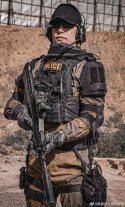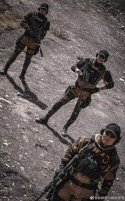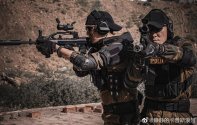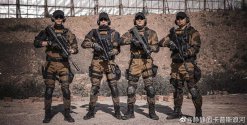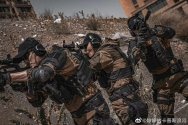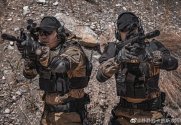You are using an out of date browser. It may not display this or other websites correctly.
You should upgrade or use an alternative browser.
You should upgrade or use an alternative browser.
PLA Ground Forces news, pics and videos
- Thread starter Jeff Head
- Start date
What's the story here, these guys look so cool, who are they?
PLA launches recruitment with priority on students in science, tech majors, with skills for actual combat
Youngsters show soaring enthusiasm amid tensions across Taiwan Straits
By Leng Shumei Published: Aug 08, 2022 09:50 PM
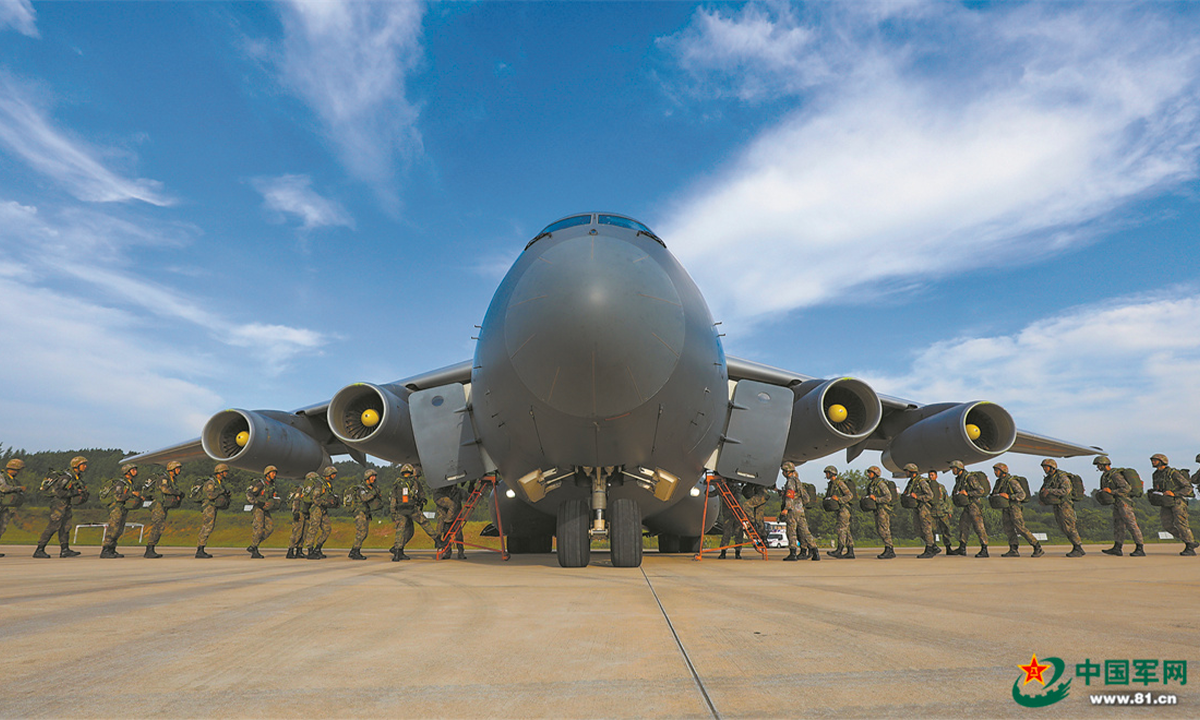
Special operations soldiers assigned to the "Thunder" Commando of the PLA Air Force airborne troops line up to board the aircraft during a parachuting training exercise in mid-summer, 2022. (eng.chinamil.com.cn/Photo by Gu Xixi, Xu Jiawang and Guo Shuai)
The Chinese military's recruitment for the second half of this year is progressing in full swing across the country, with more highly educated students being attracted to the army due to the growing focus of the People's Liberation Army (PLA) on the development of intelligence, information and skills.
The recruitment, which coincided with the recent crisis over the Taiwan Straits following the reckless visit of US House Speaker Nancy Pelosi to the island, also became a trend on China's Twitter-like Sina Weibo on Monday, witnessing growing enthusiasm among Chinese netizens who vowed to contribute to the national reunification.
The favorable conditions for this year's recruitment include relaxing the age limit for postgraduate students from 24 to 26 years old, and priority would be given to college students in science and technology schools and to those with skills that are necessary for fighting in a war, according to a report of the China Central Television on Sunday.
People with skills that are necessary for fighting in a war include those talented in the internet, communication and engineering, and surveying and drone operation, observers said, noting that the requirements aim to enhance the PLA soldiers' capacity in real combat.
These favorable conditions this year come along with the Chinese army's accelerated integrated development of mechanization, informatization and intelligentization, Song Zhongping, a Chinese military expert and TV commentator, told the Global Times on Monday.
The relaxation of the age restrictions would help to expand the scope of people available for the PLA as many postgraduate students in China had reached 24 years old when they left school, Song noted.
As the PLA is developing toward a skill-intensive army, what we need the most is technical experts who can quickly learn to operate advanced and hi-tech weapons in the army, Song said, noting that enrollment of more technical staff would help to generate and sustain the combat effectiveness of the army.
The PLA also needs people in other fields such as those majoring in management, as scientific management methods would also help promote combat effectiveness, Song noted.
This year's favorable conditions have attracted more highly educated applicants.
According to the CCTV report, so far, more than 110,000 people applied to join the army in the second half of this year in East China's Zhejiang Province, among whom 50,000 were college students and another 27,000 were college graduates.
In Suzhou, East China's Jiangsu Province, more than 8,000 local people applied to join the army in the second half of this year and college graduates accounted for more than 50 percent. In Qingdao in East China's Shandong Province, 90 percent of the 3,000 applicants are college graduates, according to media reports.
Chinese netizens also expressed their enthusiasm to join the army on Monday. Related hashtags on Sina Weibo had been viewed about nearly 100 million times as of Monday afternoon.
"Can they relax the age restriction to 36? I want to contribute to the reunification of our motherland!" said a Weibo user.
"I will apply to join the army after I become a postgraduate student and learn more technologies to serve the country," said another.
Yu Qi, an applicant from Zhejiang, told CCTV that the recent situation in the Taiwan Straits affects the heart of every Chinese national, and makes us understand that it requires strength to safeguard national security.
"I am willing to serve the country and let the name of "PLA soldier" be the honor of my life," Yu said.
Huang Ziting contributes to this story
XinJiang SWATWhat's the story here, these guys look so cool, who are they?
It literally says "Aimpeint" on their optics. These dudes are 100% larpers wdym lmao.XinJiang SWAT
I am not sure if this link has been posted here but this is a CSIS discussion on PLA logistics and it's current iteration brought on by the recent reform the PLA underwent back in 2016-2017.
Since am not that at all familiar with how effective and efficient the PLA logistics have been prepared to meet the requirements in times of conflict I am quite curious to the more familiar members of this forum what they think of the video discussion and why is your perspective on PLA logistics more sanguine than what these U.S. defense analysts almost unanimously expressed as lacking, subpar etc..
Since am not that at all familiar with how effective and efficient the PLA logistics have been prepared to meet the requirements in times of conflict I am quite curious to the more familiar members of this forum what they think of the video discussion and why is your perspective on PLA logistics more sanguine than what these U.S. defense analysts almost unanimously expressed as lacking, subpar etc..
Is guy in last picture a national or a Russian?
Lol, you didn’t get an answer, but I was curious too.
My guess, he is a Chinese minority person. Seems like there are more women and minorities in the military now.
A friend of mine in the Navy told me what they saw from the recent mobilization in Fujian in response to the Taiwan incident was very sloppy. It was on par with what we saw in Ukraine. China has the equipment but they just don't know how to organize and mobilize. It's a learning process so we'll see if China learned from these recent exercises.I am not sure if this link has been posted here but this is a CSIS discussion on PLA logistics and it's current iteration brought on by the recent reform the PLA underwent back in 2016-2017.
Since am not that at all familiar with how effective and efficient the PLA logistics have been prepared to meet the requirements in times of conflict I am quite curious to the more familiar members of this forum what they think of the video discussion and why is your perspective on PLA logistics more sanguine than what these U.S. defense analysts almost unanimously expressed as lacking, subpar etc..
Which navy? How do they know things were sloppy?A friend of mine in the Navy told me what they saw from the recent mobilization in Fujian in response to the Taiwan incident was very sloppy. It was on par with what we saw in Ukraine. China has the equipment but they just don't know how to organize and mobilize. It's a learning process so we'll see if China learned from these recent exercises.

